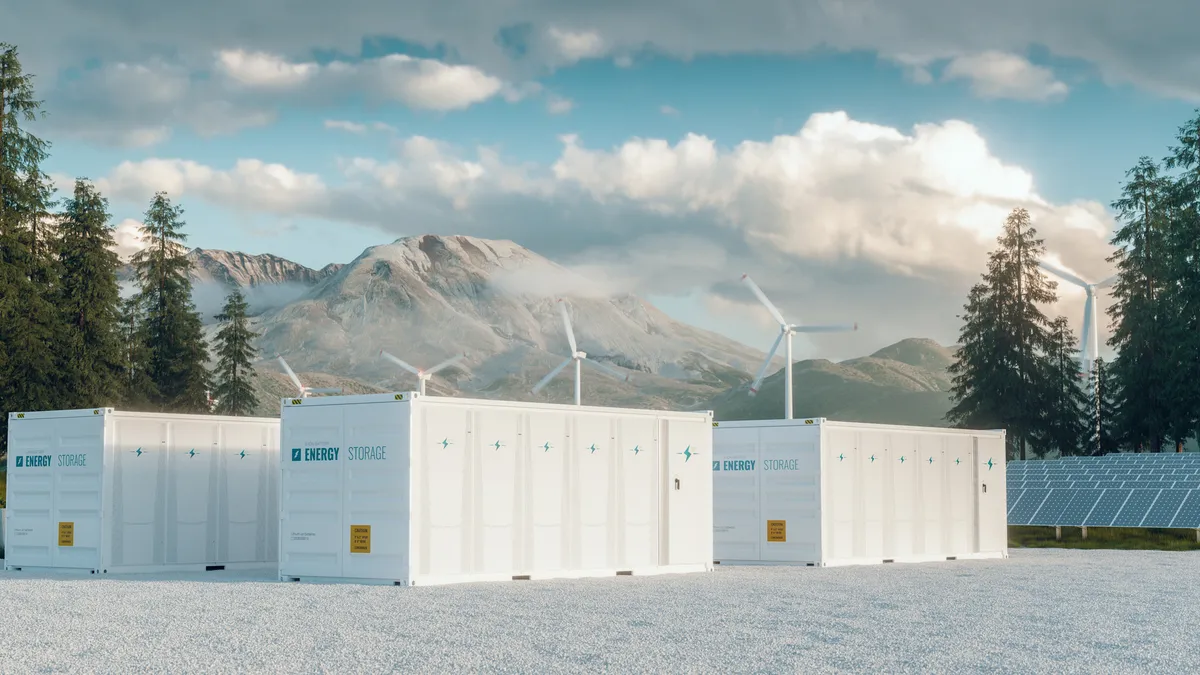Dive Brief:
- Total global corporate funding for energy storage companies grew by 117% year-over-year in the first half of 2024 to reach $15.4 billion across 64 deals, Mercom Capital Group said Wednesday.
- Total corporate funding for the smart grid industry, which includes advanced grid controls and electric vehicle charging, declined by 11% to $1.8 billion raised in 33 deals during the same period, according to Mercom’s H1 and Q2 2024 funding and mergers and acquisitions report for energy storage and smart grids.
- “Despite high interest rates and uncertain macroeconomic conditions, the energy storage sector has shown remarkable resilience and growth, driven by technological advancements and supportive policy frameworks” like the U.S. Inflation Reduction Act and California’s NEM 3.0 net billing tariff, said Raj Prabhu, CEO of Mercom Capital Group.
Dive Insight:
Debt and public market financing propelled the overall funding growth for the energy storage industry, which surged 294% year-over-year to $13 billion across 16 deals, Mercom said. That more than offset a 37% decrease in venture capital funding, which sagged to $2.4 billion in H1 2024 across 48 deals, compared to $3.8 billion raised in 43 deals in H1 2023.
H1 2024 also saw 14 energy storage mergers and acquisitions, up from eight M&A transactions in the first half of 2023.
The momentum for energy storage has continued into the second half of the year. Intersect Power announced last week that it had secured $837 million in funding for three Texas battery storage installations totaling 960 MWh from partners including Morgan Stanley, HPS Investment Partners and Deutsche Bank.
Mercom’s report underscores the continued rapid growth of the energy storage industry. U.S. battery deployments jumped 84% during Q1 2024 in a first-quarter capacity record, setting the stage for nearly 13 GW in forecasted capacity additions in 2024, Wood Mackenzie said last month.
Like Mercom’s Prabhu, Wood Mackenzie credited California’s NEM 3.0 tariff as a key tailwind for the storage industry.
The Mercom report found rising investor interest in non-lithium battery technologies, including H1 2024’s second-largest venture capital transaction: a $308 million investment in California-based EnerVenue, which develops nickel-hydrogen batteries. Battery recycling drew interest as well, with Massachusetts-based recycler Ascend Elements drawing $162 million in venture capital.
The decline in overall smart grid financing was largely due to higher interest rates, which depressed debt and public market financing activity, Prabhu said.
Debt and public market financing accounted for $321 million across seven smart grid deals in H1 2024, compared with $839 million across seven deals in H1 2023, according to Mercom’s report. M&A activity also declined from six transactions in H1 2023 to three in H1 2024.
But venture capital funding for smart grid companies grew by 22% thanks to increasing investment in smart charging infrastructure for electric vehicles, Prabhu said.
The uptick in venture capital funding “[reflects] the broader trend towards electrification and the need for advanced grid infrastructure,” he added.














